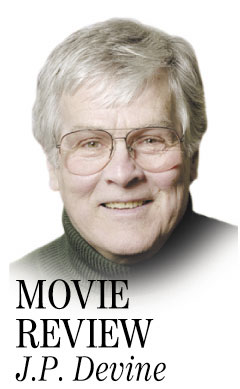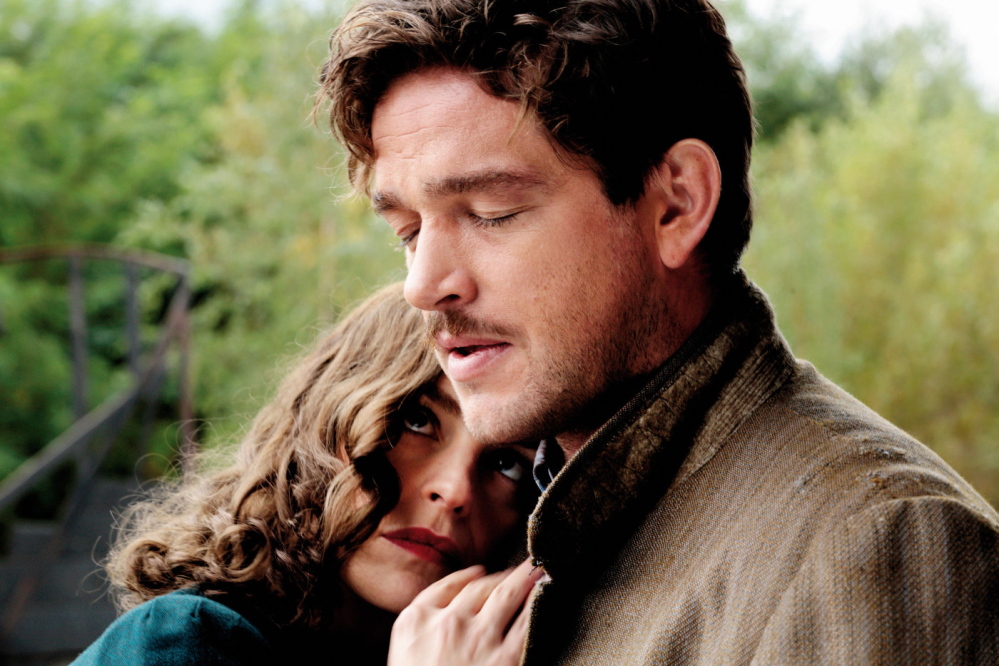“The past is never where you think you left it.” — Katherine Anne Porter
It’s 1945. In writer-director Christian Petzold’s brilliant new film, Nelly (Nina Hoss), a Jewish survivor, walks out of the human smoke of a Nazi death camp and stumbles back to the rubble of occupied Berlin.
Once a beautiful woman and cabaret singer, Nelly is a walking ghost. Disfigured by Nazi beatings and torture and haunted by her years in the camp, Nelly now is recovering under the care of Lene (Nina Kunzendorf), a Jewish agency volunteer and a former pre-war friend of hers. Nelly undergoes extreme plastic surgery to regain her old face. It’s not exactly that face, but close enough to form the matrix from which the plot emerges.
While in the hospital, friend Lene makes plans for the two of them to resettle in Haifa, Israel, and start life anew.
But Nelly’s life is more complicated than that of the average Holocaust survivor. With most of her family dead, she is the heir to a vast fortune safely locked in a Swiss bank. Lene wants to help recover it so Nelly can live safely and comfortably in Israel.
But then there is the matter of Johnny, Nelly’s gentile husband, who protected her for years. After Nelly was arrested, Johnny (Ronald Zehrfeld), a cafe pianist, was suddenly freed and disappeared, which fuels Lene’s and our suspicion that he had bought his freedom by betraying Nelly.
Nelly’s goal now is to find the one man she adored and who probably thinks her dead. She knows he must be somewhere in Berlin.
With her face still recovering, she spends days and nights searching the old haunts, most of which are now piles of rubble. When she does find him, he is a janitor and dishwasher in the Phoenix, one of the old cafes where he played piano.
Johnny, too, is a changed man, reduced to poverty. Long convinced of her death, he fails to recognize her, but there is the small trace of her old self, more spiritual than physical, but enough to fuel his dream, wherein he will turn this “stranger” into his dead Nelly, bring her to the remainder of her family and convince them that she is indeed their lost Nelly, and of course, recover and share her fortune.
Here is where the story begins to pull in from the past bits of Hitchcock’s “Vertigo.” Johnny finds old clothes of his “dead” wife that he had kept — a red dress, a hat, stylish shoes. He assembles his fevered plan to survive and flourish.
Here, Petzold asks us to accept blindly the notion that Johnny is so war-damaged and hungry for Nelly’s fortune that he does not see the very real Nelly before his eyes, even failing to see the numbers tattooed on her arm. It’s a stretch. But the performances by both actors are so strong, the story so compelling, we go along, exactly as we did when Jimmy Stewart was equally blinded by Kim Novak in “Vertigo.”
It’s what we do for the love of story. We’re romantics, are we not? We go along.
Zehrfeld is a strong actor with a gift for making impeccable choices in his scenes. Hoss, a gifted actor, caught our attention in a smaller part, working with Philip Seymour Hoffman last year in “A Most Wanted Man.” Here, this rising European actor, working from behind a hideous scarred face and bandages, steps closer to international fame. Her last scene, as she walks away from a piano, having revealed her identity, is breathtaking.
“Phoenix” has all the taste and feel of a 1940s American noir film. It begins, of course, in the rain, with a low-key jazz rendition of Kurt Weill and Ogden Nash’s haunting 1943 song “Speak Low” playing on a car radio. We’re hooked.
“Phoenix” is the perfect choice to kick-start this year’s Maine International Film Festival.
J.P. Devine is a former stage and screen actor.
Send questions/comments to the editors.





Comments are no longer available on this story